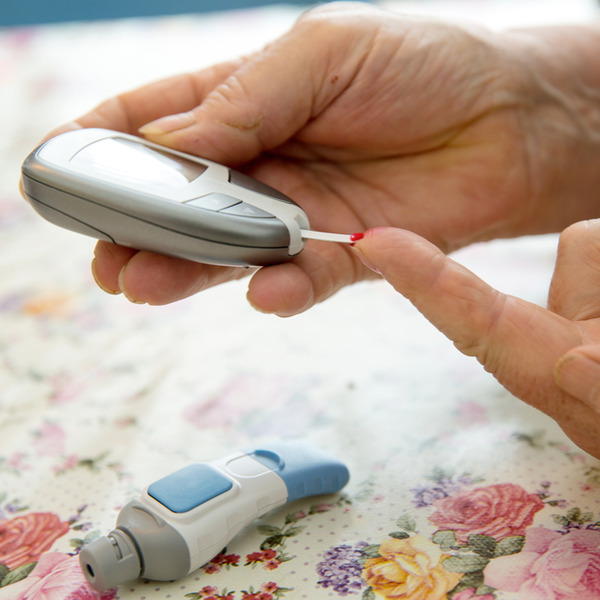This website uses cookies so that we can provide you with the best user experience possible. Cookie information is stored in your browser and performs functions such as recognising you when you return to our website and helping our team to understand which sections of the website you find most interesting and useful.
Live Research Using the GM Care Record
Detailing the research approved in Greater Manchester using deidentified patient information
The following research has been approved and is progressing in Greater Manchester using deidentified patient data from the GM Care Record.
The equitability of the UK COVID-19 vaccination strategy

Principal Investigator: Dr Ruth Watkinson, The University of Manchester
Number of researchers accessing the dataset: 4
Summary: The government plan for the roll out of the COVID-19 vaccines aims to protect the most vulnerable first, giving priority access to people with the highest risk of hospitalisation or mortality from COVID-19.
We aim to use electronic health data from across Greater Manchester to test whether the government vaccination plan meets the goal of giving equal priority to people with equal vulnerability to COVID-19.
Healthcare utilisation across Greater Manchester during the COVID-19 Pandemic
Principal Investigator: Dr. Stuart Grant, The University of Manchester
Number of researchers accessing the dataset: 2
Summary: We will use the GM Care Record to study how the healthcare system in Greater Manchester has been used throughout the pandemic. For example, how busy GP surgeries are, how many routine operations are conducted, and how full the hospitals are.
We will study this over the time of the pandemic, and split the analysis according to patients with and without COVID-19.
These analyses will give important insights into bottlenecks in the system that will help with planning for subsequent waves and future pandemics.

COVID-19 incidence, COVID-19 related hospital admission and death in cancer patients in Greater Manchester.

Principal Investigator: Professor Corinne Faivre-Finn, The University of Manchester
Number of researchers accessing the dataset for research: 3
Summary: We will use the GM Care Record to determine the risks and factors associated with COVID-19 diagnosis, hospital admission and death in cancer patients, with hospitalisation and deaths data linked for the first time to longitudinal primary care electronic health records in GM.
We will study this over the time of the pandemic, and split the analysis according to patients with and without cancer, and with and without COVID-19. This work will provide an overall picture of COVID-19 risk in all GM patients with cancer and help inform individual management decisions for cancer patients regarding treatment and need for shielding.
Evaluation of why having type 2 diabetes greatly increases the risk of becoming seriously unwell or dying with COVID-19
Principal Investigator: Dr Adrian Heald, Salford Royal Hospital and The University of Manchester
Number of researchers accessing the dataset: 3
Summary: The plan is to compare all people who have diabetes in Greater Manchester and were alive on 1 January 2020, who became seriously ill and/or died with COVID-19, with those with diabetes who were infected with COVID-19 and did not become seriously unwell.
This will be done by analysis of their medical history, allergy status, COVID-19 test status, prescribed medication, ethnicity and socio-demographic situation.
This will determine what is different about the people with known diabetes who became seriously ill or die, versus those that had a mild infection or no symptoms at all.

Frequency of self-harm episodes in primary care records in Greater Manchester: retrospective cohort study examining the impact of COVID-19

Principal Investigator: Dr. Sarah Steeg, The University of Manchester
Number of researchers accessing the dataset for research: 2
Summary: Understanding how the COVID-19 pandemic has affected help seeking following self-harm is important. People who have self-harmed have much higher risk of later dying by suicide compared to the rest of the population. To help reduce this risk, early treatment and follow-up is recommended. However, following the pandemic, GP surgeries and hospitals had to adapt quickly to new ways of helping patients.
In the Spring 2020 wave of the pandemic, fewer people sought help for self-harm. It is not known if this is has happened through Winter 2020-2021 as the COVID-19 pandemic continued.
We aim to use the GM Care Record to find out if the numbers of people seeking help following self-harm during the Winter months followed a similar pattern as in the Spring of 2020. We also want to know if there are differences between men and women, between younger, middle-aged and older people, and between people living in areas that are less ‘well off’ compared to those that are more affluent. This will help us to understand if health services are meeting people’s needs and if any groups need greater attention and enhanced support.
Caught in the cross-fire of COVID-19 – opportunities to improve practice and reduce harm in patients with rheumatoid arthritis taking methotrexate
Principal Investigator: Jenny Humphreys, The University of Manchester
Number of researchers accessing the dataset: 2
Summary: Rheumatoid arthritis (RA) is a long-term inflammatory disease that requires treatment with medications to suppress the immune system, such as Methotrexate. Patients with RA taking these medications need to attend a rheumatologist or their GP on a regular basis to have monitoring blood tests, to make sure they do not develop side effects. However, we do not know how frequent this monitoring needs to be as there has been very little research to understand this. Current guidelines from the British Society of Rheumatology are based on expert opinion, and say these blood tests should occur every 12 weeks, once patients have been established on the treatment and are on a stable dose.
During the COVID-19 pandemic, routine blood tests were impacted for RA patients and the National Institute for Health and Care Excellence (NICE) issued rapid guidelines which said that the gap between monitoring blood tests could be increased in patients who are on stable treatment. However these guidelines did not say what increase was safe.
NICE would like to improve the research evidence supporting these guidelines. Therefore, with both NICE and a patient partner, we developed the following key questions to answer in this project using data from the GM Care Record.
- What were the gaps between blood tests for patients with RA taking methotrexate during the COVID-19 pandemic (March to December 2020)?
- For patients with RA whose interval for blood tests increased, was this associated with:
- Abnormal monitored bloods test results?
- Gaps in methotrexate prescriptions leading to more visits to the GP or A&E, or more steroid tablets given?


